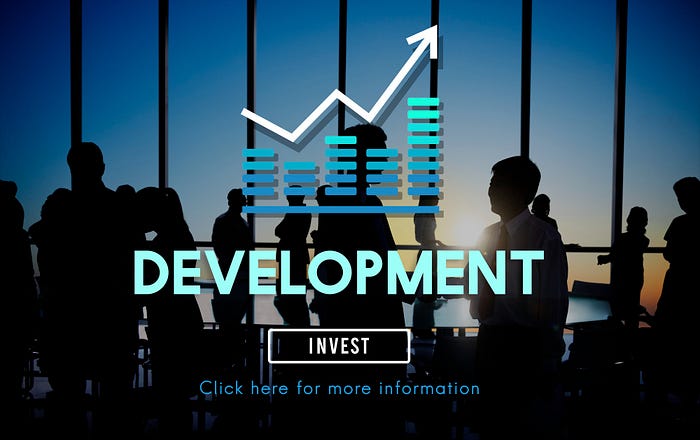The 70–20–10 Framework: Revolutionizing Learning and Development in the Workplace
In today’s rapidly evolving work environment, organizations are increasingly looking for ways to develop their workforce continuously. One model that has gained significant attention for its effectiveness in professional growth is the 70-20-10 Framework. This model offers a holistic approach to learning by blending hands-on experience, social interactions, and formal education to create a robust foundation for employee development. Let’s explore how the 70-20-10 Framework is reshaping professional growth in organizations worldwide.

What is the 70-20-10 Framework?
The 70-20-10 Framework is a learning and development model that posits the most effective learning occurs through a blend of three core elements:
70% Learning Through On-the-Job Experiences
20% Learning Through Social Interaction and Feedback
10% Learning Through Formal Education and Training
This framework suggests that the bulk of learning happens in real-world work scenarios, complemented by social learning (interactions with others) and formal education. This approach challenges traditional learning models that place heavy emphasis on classroom-based training and highlights the importance of learning as it naturally occurs in the workplace.
The 70%: Learning Through Experience
The most significant portion of the 70-20-10 Framework is learning through hands-on experience, accounting for 70% of an employee’s development. This kind of learning is deeply embedded in the tasks employees perform daily, such as:
Problem-solving: Employees develop critical thinking by solving real work problems.
Job Responsibilities: Through performing specific tasks, employees acquire practical skills that directly relate to their roles.
Leadership and Collaboration: Taking on leadership roles or working with colleagues fosters the development of interpersonal and organizational skills.
By providing employees with challenging, high-impact work, organizations can create an environment where learning happens naturally. This approach encourages employees to take ownership of their learning, experiment with new strategies, and become proactive in their personal and professional development.
The 20%: Learning Through Social Interaction
The next important element of the 70-20-10 Framework (20%) focuses on learning through social interaction. This aspect highlights the value of learning through feedback, mentorship, peer relationships, and collaboration. The key social learning mechanisms include:
Mentorship and Coaching: Personalized guidance from more experienced individuals can provide invaluable insights into both technical and soft skills development.
Peer Learning: Employees learn from each other by sharing knowledge, collaborating on projects, and exchanging experiences.
Feedback: Constructive feedback from peers and managers helps employees reflect on their performance and identify areas for growth.
Social learning not only enhances skills but also strengthens the workplace culture. It fosters an environment of open communication, collaboration, and knowledge-sharing, which is vital for creating a learning-centric organization.

The 10%: Learning Through Formal Education
While hands-on experience and social interaction play the dominant roles in the 70-20-10 Framework, formal education still represents a vital component, accounting for 10% of professional growth. This element focuses on structured learning experiences such as:
Workshops and Seminars: These provide employees with specialized knowledge and up-to-date industry trends.
Certifications and Courses: Formal programs that offer specific qualifications and expertise to help employees expand their skillset.
Industry Events and Conferences: Opportunities for employees to stay informed about industry developments and best practices.
Though formal education remains important, the 70-20-10 Framework emphasizes that it should not be the primary driver of learning. Instead, it should complement and support learning derived from on-the-job experiences and social interactions.
How the 70-20-10 Framework Transforms Professional Growth
The 70-20-10 Framework is a transformative model for organizations looking to enhance the learning and development of their workforce. Here’s how it impacts professional growth:
Fosters Continuous Learning: With a focus on experiential and social learning, the framework promotes a culture of lifelong learning where employees are constantly engaged in growing their skills and adapting to change.
Encourages Self-Directed Learning: Employees become responsible for their own growth, with experiences and social connections driving their development.
Increases Employee Engagement: When learning happens in real-world contexts, it becomes more relevant and motivating. This leads to higher levels of employee engagement and job satisfaction.
Strengthens Organizational Agility: Employees who learn through hands-on experience and peer feedback are more adaptable and capable of responding to evolving business challenges.
Maximizes ROI on Learning Initiatives: By prioritizing experiential and social learning, organizations can achieve better returns on their investment in employee development, as the learning is more integrated into the workflow.
Implementing the 70-20-10 Framework in Your Organization
To effectively implement the 70-20-10 Framework, organizations should focus on:
Incorporating Learning into Daily Tasks: Encourage employees to take on projects, manage teams, and solve real-world problems that promote on-the-job learning. This enables them to develop skills that are directly relevant to their roles.
Fostering a Collaborative Learning Environment: Create a culture of learning by encouraging knowledge-sharing, providing mentorship opportunities, and offering regular feedback to employees.
Supporting Formal Learning: Offer targeted, formal education opportunities, such as workshops, certifications, and online courses, that complement the skills gained through experience and social interaction.
Leveraging Technology: Use digital platforms and eLearning tools to facilitate both formal and informal learning, allowing employees to access resources whenever needed.

Conclusion
The 70-20-10 Framework is a powerful model that revolutionizes professional development by focusing on the most effective ways people learn. By blending experiential learning, social interactions, and formal education, this framework provides a holistic approach to employee development. Implementing the 70-20-10 Framework ensures that organizations foster a culture of continuous learning, boost employee engagement, and enhance organizational performance. By adopting this model, organizations can create a more agile, skilled, and motivated workforce, ultimately positioning themselves for success in a dynamic business landscape.
